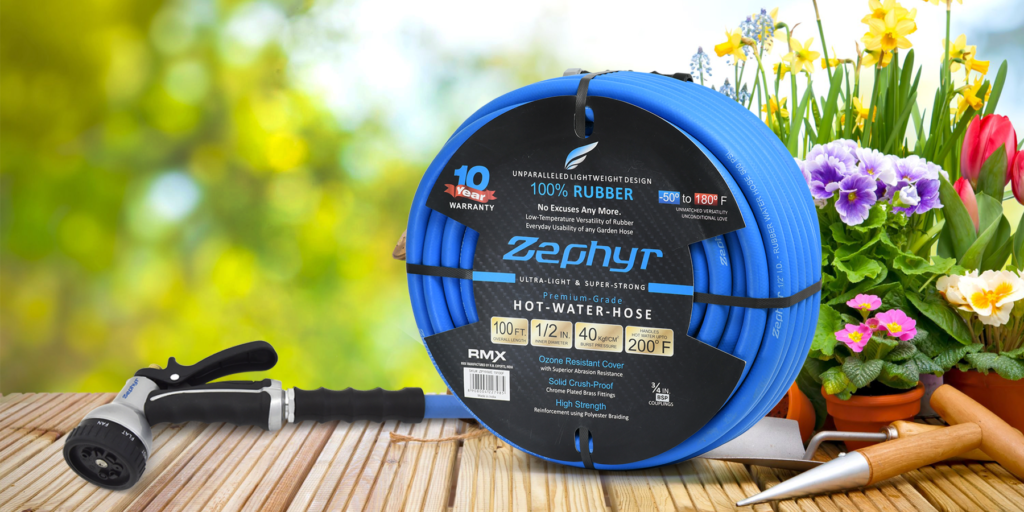Flexible rubber hoses are essential tools for various domestic and industrial applications. They are highly versatile, designed to withstand extreme weather, resist wear and tear, and provide long-lasting performance. Whether an avid gardener or a professional contractor, a reliable rubber hose can enhance efficiency and productivity.
In this guide, we’ll dive into the features, benefits, and applications of flexible rubber hoses and why they are a preferred choice for homeowners and professionals alike.
What Is a Flexible Rubber Hose?
A flexible rubber hose is crafted from a high-grade rubber material, often reinforced with additional layers for extra strength and flexibility. These hoses are engineered to resist cracking, kinking, and bursting under high-pressure water flow, making them suitable for heavy-duty and everyday use.
Key Features of Flexible Rubber Hoses
Durable Material: Rubber is naturally resistant to abrasion, UV rays, and extreme temperatures, ensuring a longer lifespan.
Lightweight Design: Advanced hoses, like those offered by Zephyr Watering, are 40% lighter than traditional rubber hoses, making them easier to handle and transport.
Kink-Free Performance: Special formulations and construction ensure the hose remains pliable, even under challenging conditions.
Versatility: Compatible with various attachments, such as spray guns and quick connectors, for diverse applications.
High-Pressure Handling: These hoses can sustain high operating pressures, often exceeding 150 PSI, making them ideal for demanding tasks.
Benefits of Using Flexible Rubber Hoses
- Weather Resistance: Unlike traditional plastic hoses, rubber hoses remain flexible in extreme cold or heat, ensuring uninterrupted performance year-round.
- Eco-Friendly: Durable construction reduces the need for frequent replacements, minimizing environmental waste.
- Improved Water Flow: Smooth internal surfaces prevent blockages, ensuring consistent water flow.
- Multi-Functional: These hoses cater to various needs, from garden watering to industrial cleaning.
- Leak-Proof Connections: Secure fittings, often made of brass, ensure no water is wasted.
Applications of Flexible Rubber Hoses
Gardening
Rubber hoses are a gardener’s best friend, offering flexibility and durability for watering plants, cleaning patios, or connecting to irrigation systems. Their UV resistance prevents cracking under prolonged sun exposure.
Industrial Use
For professionals in construction or manufacturing, rubber hoses handle high pressures and temperatures, making them ideal for transporting fluids or cleaning equipment.
Car Washing
With their kink-free design and compatibility with spray nozzles, rubber hoses simplify car washing, delivering consistent water pressure for optimal results.
Home Maintenance
Thanks to their durability and adaptability, rubber hoses are perfect for cleaning driveways, patios, and even gutters.
How to Choose the Right Flexible Rubber Hose
- Length: Measure the distance between your water source and the use area to determine the ideal hose length.
- Diameter: Standard diameters like 1/2 inch or 3/4 inch cater to most needs, but larger diameters are better for industrial tasks.
- Material Quality: Opt for hoses with reinforced rubber or polyester layers for added strength.
- Fittings: Look for brass or stainless steel fittings to prevent rust and leaks.
- Warranty: Trusted brands, like Zephyr Watering, offer extended warranties, ensuring value for money.
Maintenance Tips for Flexible Rubber Hoses
- Regular Cleaning: Flush debris and dirt after each use to prevent clogs.
- Proper Storage: Coil the hose neatly and store it in a shaded area to avoid UV damage.
- Inspect for Wear: Periodically check for cracks, leaks, or worn-out fittings and replace parts as needed.
- Avoid Excess Pressure: Avoid exceeding the recommended pressure to prolong the hose’s life.
FAQs
What makes flexible rubber hoses better than plastic hoses?
Rubber hoses are more durable, resistant to weather conditions, and less prone to cracking or kinking, making them a long-term investment.
Can rubber hoses handle hot water?
Yes, most rubber hoses can handle hot water up to 95°C, suitable for cleaning and other heat-intensive tasks.
How do I prevent my hose from kinking?
Look for hoses with a kink-resistant design and store them adequately coiled to maintain their shape.
Are rubber hoses safe for drinking water?
Some hoses are certified for potable water use. Always check the product specifications before purchasing.
How long do rubber hoses last?
With proper care, a high-quality rubber hose can last over 10 years, as seen with warranties offered by companies like Zephyr Watering.
Can I use a rubber hose for industrial applications?
Yes, rubber hoses with reinforced layers are designed to withstand the demands of industrial use.
Conclusion
Investing in a flexible rubber hose is brilliant for anyone seeking durability, efficiency, and versatility. Whether you’re you’re watering your garden, cleaning your car, or managing industrial tasks, these hoses offer unparalleled performance and reliability. Trusted brands like Zephyr Watering ensure product quality and innovation, setting the benchmark for excellence in this category.
Elevate your outdoor and maintenance tasks with the perfect flexible rubber hose today!

